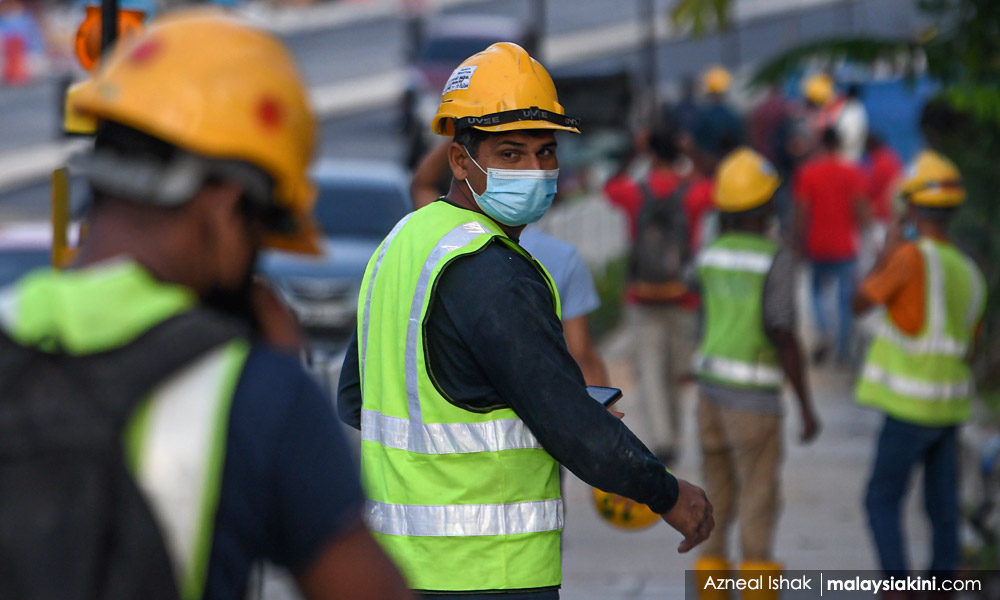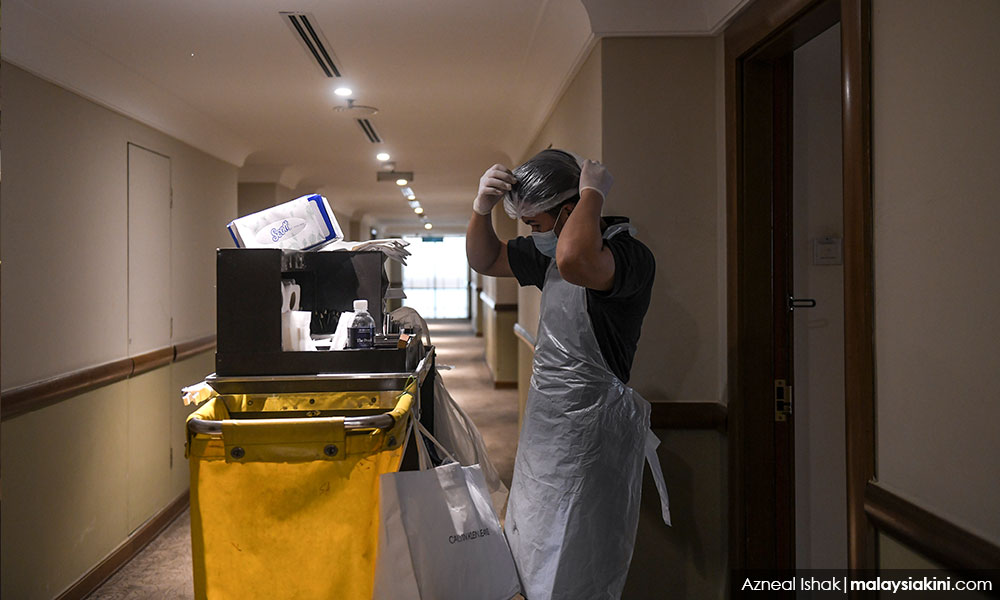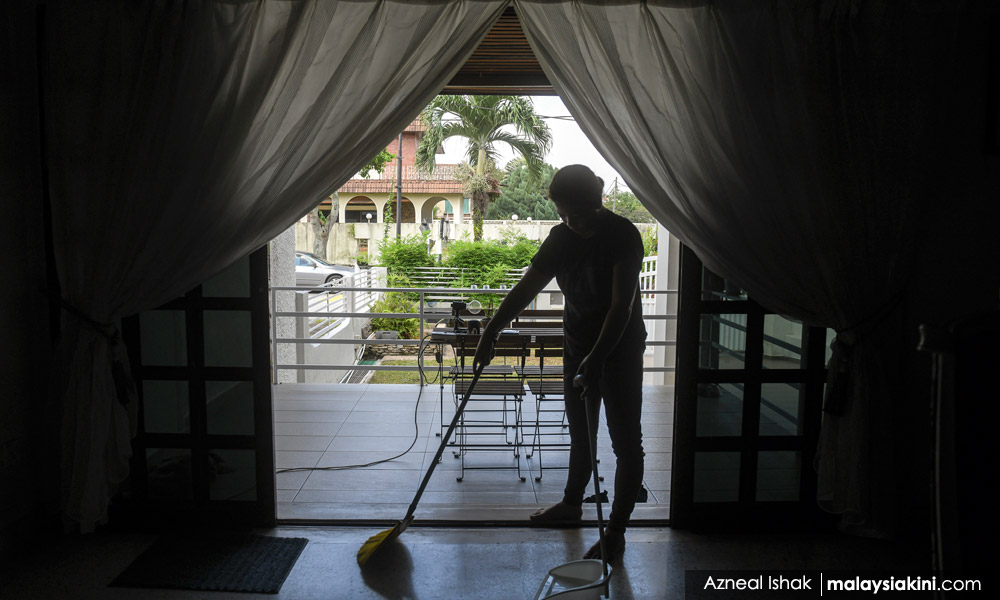MP SPEAKS | On this International Workers Day or more commonly known as Labour Day in Malaysia, I would like to wish all workers in Malaysia “Happy Labour Day” (Selamat Menyambut Hari Buruh).
The past two years have been harsh and difficult for workers. At the height of uncertainty during the first Covid-19 lockdown, unemployment hit a high of 5.3 percent in May 2020 as 800,000 workers were out of a job.
Self-employed workers, hawkers and small traders and those in the tourism and hospitality industries were among the hardest hit. On the other hand, healthcare workers were put under immense pressure as many endured physical and emotional stress at the pandemic frontline.
More than ever, the pandemic highlighted the pressing need for greater social protection for workers. For example, the Employment Insurance System (EIS), which provides unemployment income temporarily for workers who have lost their jobs, only has 6.9 million contributors as of April 2022.
At least six million workers have yet to participate in the EIS administered by Social Security Organisation (Socso). We must invest more efforts to extend this social protection to Malaysian workers, including those without formal employment contracts, such as ride-hailing drivers and other gig workers.
When strong political will underpinned by bipartisan cooperation is necessary to deliver greater social protection for Malaysian workers, DAP stands ready to work with all parties who share the same objective.

EPF withdrawals
The past two years have also seen unprecedented steps in allowing four withdrawals for Employees Provident Fund (EPF members) under retirement age.
After the third EPF withdrawal in 2021, then EPF chief executive officer Tunku Alizakri Alias revealed that 30 percent of 1.6 million members of EPF may have depleted nearly all of their retirement savings in Account 1 (with only a minimum balance of RM100) and 60 percent or three million members will have used up all of their savings in Account 2.
The fourth EPF withdrawal this year will see more members, including many in the M40 category, deplete their retirement savings at an unprecedented rate. It will take decades before the depleted retirement savings recover. More creative and long-term policies are needed to assist workers to replenish their EPF retirement savings, especially among the B40 workers.
In the past two years, we have fought hard to keep as many workers employed by making sacrifices and compromises. DAP and Pakatan Harapan criticised the insufficiency of the RM600 per month wage subsidy that was announced by former prime minister Muhyiddin Yassin’s administration during the first lockdown in March 2020.
To protect jobs, we stood firm and teamed up with unions and advocacy groups to call for stronger measures. We succeeded when the government increased the wage subsidy to RM1200 per month per worker for companies with 75 workers or less.
In 2021, we pushed for an additional RM45 billion in funding and assistance, especially for micro, small and medium enterprises (SMEs) affected by the pandemic, as part of the Memorandum of Understanding (MOU) between the Ismail Sabri administration and Pakatan Harapan.

The historic MOU signed on Sept 13, 2021, provided political and economic stability for the country much needed for managing the Covid-19 crisis. Without the temporary political ceasefire, the unending tumult would have derailed economic recovery and the livelihood of a majority of workers.
Worker’s rights
The role of unions in advocating for workers' rights is of utmost importance in any country. We are grateful for the hard work which many of the unions in Malaysia have put in over the years to ensure that the voices of workers are heard loudly and clearly.
At the same time, we are also concerned that the level of unionization among Malaysian workers is only at six percent, a very low figure (excluding civil servants).
With the move toward more jobs in the service sector, in the gig economy and in smaller companies, I urge our unions to be more flexible and creative in their approach to attracting membership and reaching out to the younger generation.

The future of the workforce in Malaysia will be the brightest if the tripartite partnership between unions, employers and the government is working seamlessly.
With a strong union infrastructure and capacity, employers and the government can work hand-in-hand with union members and workers to introduce policies which can increase the well-being, wages and productivity of workers all across the board.
For example, following the minimum wage increase to RM1500 effective today, other labour market reforms and government policy enhancements should also take place so that employers and employees can benefit from the economic recovery together.
Increase wages
Rather than fearing the process of automation, Industry 4.0 measures should benefit employees and unions as it will increase efficiency and provide the basis to increase the wages of existing workers.
Unions should also welcome training programs and the piloting of productivity linked wages in certain industries and sectors as part and parcel of a longer-term vision to raise wages and the overall standard of living among workers in Malaysia.
The process of recruiting foreign workers should also be made more transparent so that the rights of these workers will be safeguarded even before they come to Malaysia.

While they are here, they should be provided with accommodation which is consistent with Malaysian laws including Act 446 , which was comprehensively strengthened following the amendment in July 2019 by Pakatan Harapan.
Recently, on March 21, Malaysia ratified the International Labour Organization Protocol 2014 (ILO P29) which obliged the government to institute reforms and demonstrate progress towards preventing, criminalising and prosecuting forced labour activities.
Progressive labour policies are the hallmark of a truly developed nation which Malaysia must strive to be. I want to highlight the recurrent cases of vulnerable Malaysian youths being lured by criminal syndicates through a targeted online advertisement to sign up as workers in online scams under forced labour conditions.
According to reports, thousands of workers, many of them Malaysian, are allegedly forced to work in a ‘lawless’ frontier at the Thai – Myanmar border for online gambling and scamming syndicates.
I call upon the government to bring the full force of law against the perpetrators of forced labour and fraudulent online ads targeting job-searching young workers. To prevent more workers from falling prey to these criminals, we need the Malaysian Communications and Multimedia Commission, Royal Malaysia Police and other enforcement agencies to step in, work with Facebook and Google to eradicate the source, and charge the perpetrators in court.
Work with authorities in our neighbouring countries to stop the criminals and bring the Malaysian workers back to safety with their families.
The rights of workers, both Malaysians and non-Malaysians, in and outside Malaysia need to be protected through our domestic legislation, through our obligations and the obligations of our trading partners via the Free Trade Agreements which we part of and through our international obligations.
There is a long way to go in the struggle for higher wages, better jobs and stronger protection for workers in Malaysia. Let us join forces and take this journey together.
Have a restful Labour Day! - Mkini
ANTHONY LOKE SIEW FOOK is DAP secretary-general and MP of Seremban.
The views expressed here are those of the author/contributor and do not necessarily represent the views of MMKtT.




No comments:
Post a Comment
Note: Only a member of this blog may post a comment.